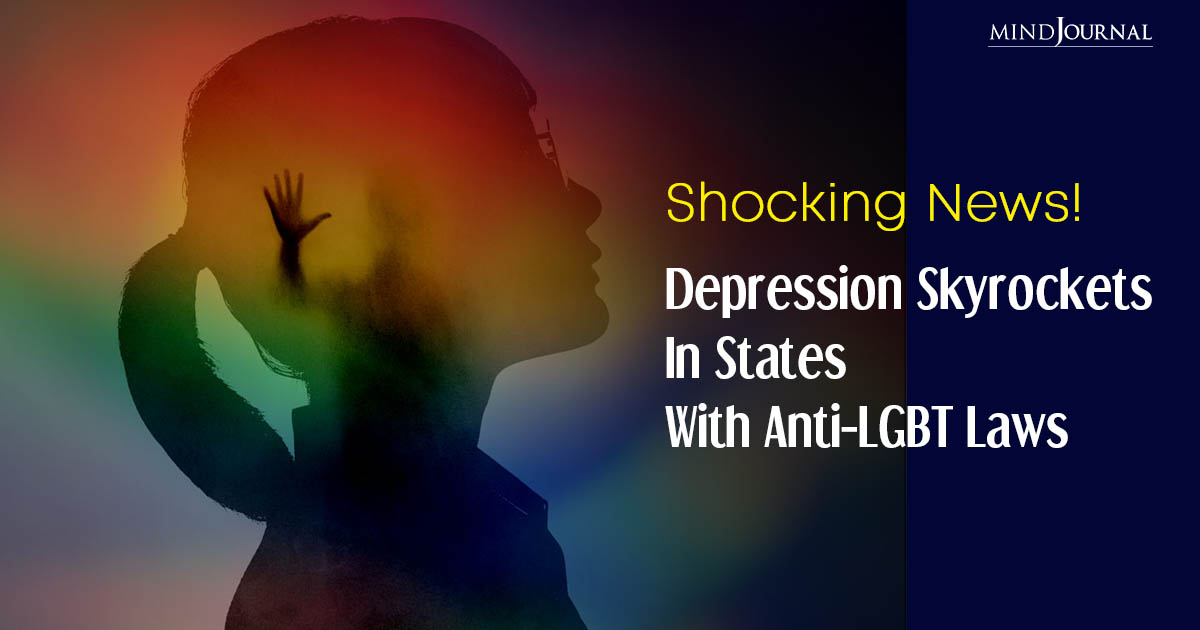According to a recent study, there is a significantly higher risk of depression in minority youth who are identified as LGBTQ+, Black, or Hispanic and reside in the U.S.
The findings validate the daily experiences are responsible for rising depression rates of queer and trans people of color, highlighting the profound impact that the surrounding environment has on the mental well-being of minority youth.
Discriminatory Environment Amplify Depression In Minority Youth Including The LGBTQ+ Youth
As anti-LGBTQ+ legislation impact, states like Florida serve as poignant examples where the mental health of queer and trans youth is being directly influenced by their discriminatory surroundings, further underscoring the urgent need for change.
According to findings from the study, when factors like individual experiences of race, ethnicity, and sexual orientation-based bullying were taken into account, the results were shocking.
It was discovered that Black and Hispanic LGBTQ+ youth faced a 32% higher likelihood of experiencing symptoms of depression in states lacking minority rights, crucial protections such as anti-bullying legislation, and conversion therapy bans.
Lead study author Skyler Jackson, an assistant professor in Yale’s Department of Social and Behavioral Sciences, emphasized that the laws, policies, and overall social conditions in which individuals reside profoundly impact their health and well-being.
Read more here: LGBTQ Mental Health In The Trump Era: Impact Of Community Connection Explored
The Yale LGBTQ+ Mental Health Initiative aims to enhance our comprehension of LGBTQ+ populations’ mental well-being, both within the United States and globally.
As part of their research, the study authors assessed states based on nine key indicators of anti-LGBTQ+ structural stigma that are particularly pertinent to adolescents.
These indicators encompass a range of factors that contribute to the discriminatory environment experienced by minority and LGBTQ+ youth.
MAJOR KEY INDICATORS –
1. The absence of comprehensive anti-bullying legislation
2. The lack of conversion therapy bans
Read More here: 11 Signs You Need To Talk To A Therapist
3. Restrictions on healthcare access
4. Limited legal recognition of LGBTQ+ rights
5. Unequal employment protection
6. Inadequate LGBTQ+ inclusive education policies, among others
This study sheds light on the youth mental health disparities and complex ways in which stigma manifests in the lives of LGBTQ+ individuals, completing a crucial piece of the puzzle.
The negative impact of such legislation cannot be underestimated. This creates an oppressive atmosphere that directly affects their mental well-being.
LGBTQ+ youth are constantly subjected to stigma, prejudice, and discrimination, both in their everyday lives and within the legal framework that governs their rights and protections

SIGNS OF DEPRESSION –
The signs of depression among these youth may manifest in various ways.
- They might experience persistent feelings of sadness, hopelessness, or worthlessness.
- There may be a noticeable decline in their academic performance or a loss of interest in activities they once enjoyed.
- They may become withdrawn, socially isolated, or exhibit changes in sleep and appetite patterns.
- In extreme cases, they may even exhibit thoughts of self-harm or suicide.
It is crucial for society to recognize the profound impact of anti-LGBTQ+ legislation on the mental health of minority and LGBTQ+ youth.
Efforts must be made to treat the depression in minority and LGBTQ+ youth to create affirming and inclusive environments, provide adequate support systems, and enact comprehensive policies








